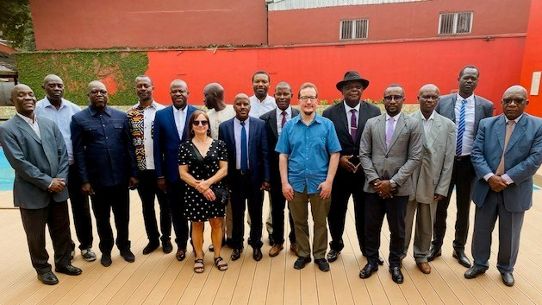During this spring, SMHI together with local partners, held workshops in Maputo, Niamey and Douala with participants from many parts of Africa. The purpose of the workshops was to gain a common understanding of problems and needs in order to design a climate program proposal together.
At the workshops, SMHI met experts and potential participants in the program and discussed priorities, needs for climate data, use of climate data and cases were the data can help create climate resilience.
Final workshop in Douala
11 participants from five countries in central Africa came to the final workshop in Douala. The five countries were Cameroon, Burundi, Central African Republic, Democratic Republic of Congo and Gabon. The participants represented universities, national meteorological institutes, regional climate organizations, national ministries and research centers. The Center for Application and Climatological Forecasting of Central Africa (CAPC-AC) was the local partner in Douala. SMHI has previously had International Training Programs (ITP) in Cameroon and has participated in other research collaborations.


It was a very successful workshop with many group discussions, engaging conversations and networking. The feedback we received was that many wanted even more time for collaboration, says Iréne Lake, who leads parts of the project and helped organize the workshop.
- One participant said that one of the topics, practical examples, is exactly what you need to show to decision makers, says Iréne.
To briefly summarize the workshops, there are many and complex needs, but also some common experiences. A conclusion after the workshops is that there is a great demand for capacity exchange as well as more and improved climate information on the scale where most decisions are made.